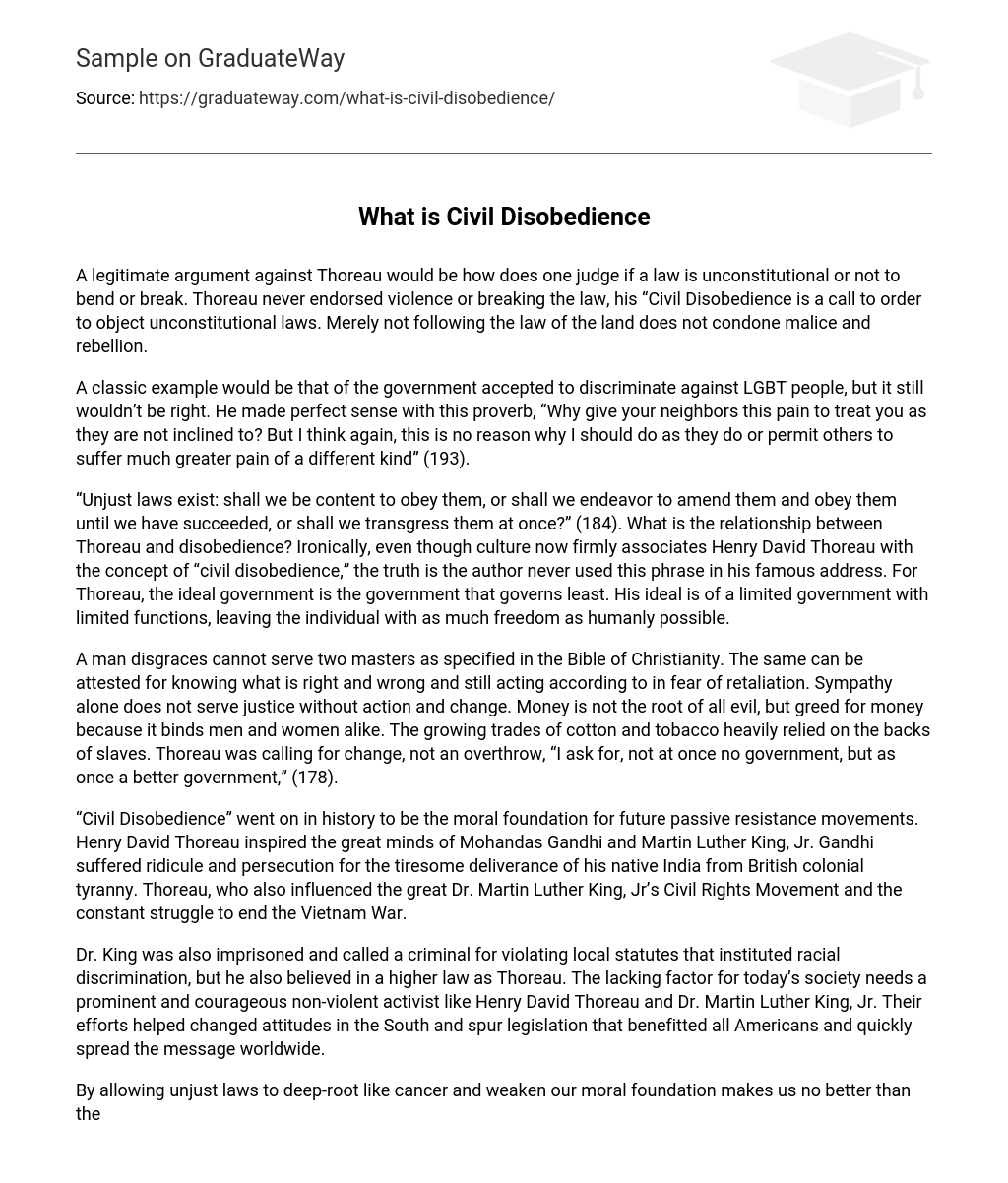A legitimate argument against Thoreau would be how does one judge if a law is unconstitutional or not to bend or break. Thoreau never endorsed violence or breaking the law, his “Civil Disobedience is a call to order to object unconstitutional laws. Merely not following the law of the land does not condone malice and rebellion.
A classic example would be that of the government accepted to discriminate against LGBT people, but it still wouldn’t be right. He made perfect sense with this proverb, “Why give your neighbors this pain to treat you as they are not inclined to? But I think again, this is no reason why I should do as they do or permit others to suffer much greater pain of a different kind” (193).
“Unjust laws exist: shall we be content to obey them, or shall we endeavor to amend them and obey them until we have succeeded, or shall we transgress them at once?” (184). What is the relationship between Thoreau and disobedience? Ironically, even though culture now firmly associates Henry David Thoreau with the concept of “civil disobedience,” the truth is the author never used this phrase in his famous address. For Thoreau, the ideal government is the government that governs least. His ideal is of a limited government with limited functions, leaving the individual with as much freedom as humanly possible.
A man disgraces cannot serve two masters as specified in the Bible of Christianity. The same can be attested for knowing what is right and wrong and still acting according to in fear of retaliation. Sympathy alone does not serve justice without action and change. Money is not the root of all evil, but greed for money because it binds men and women alike. The growing trades of cotton and tobacco heavily relied on the backs of slaves. Thoreau was calling for change, not an overthrow, “I ask for, not at once no government, but as once a better government,” (178).
“Civil Disobedience” went on in history to be the moral foundation for future passive resistance movements. Henry David Thoreau inspired the great minds of Mohandas Gandhi and Martin Luther King, Jr. Gandhi suffered ridicule and persecution for the tiresome deliverance of his native India from British colonial tyranny. Thoreau, who also influenced the great Dr. Martin Luther King, Jr’s Civil Rights Movement and the constant struggle to end the Vietnam War.
Dr. King was also imprisoned and called a criminal for violating local statutes that instituted racial discrimination, but he also believed in a higher law as Thoreau. The lacking factor for today’s society needs a prominent and courageous non-violent activist like Henry David Thoreau and Dr. Martin Luther King, Jr. Their efforts helped changed attitudes in the South and spur legislation that benefitted all Americans and quickly spread the message worldwide.
By allowing unjust laws to deep-root like cancer and weaken our moral foundation makes us no better than the front-lined inciters. Both courageous men sought to overthrow unjust laws that promoted and condoned aggression, bigotry, hypocrisy, and segregation. A voice to be heard from the people, by the people to protest segregation, slavery, and prejudice and promote integration and equality for all, not some.





